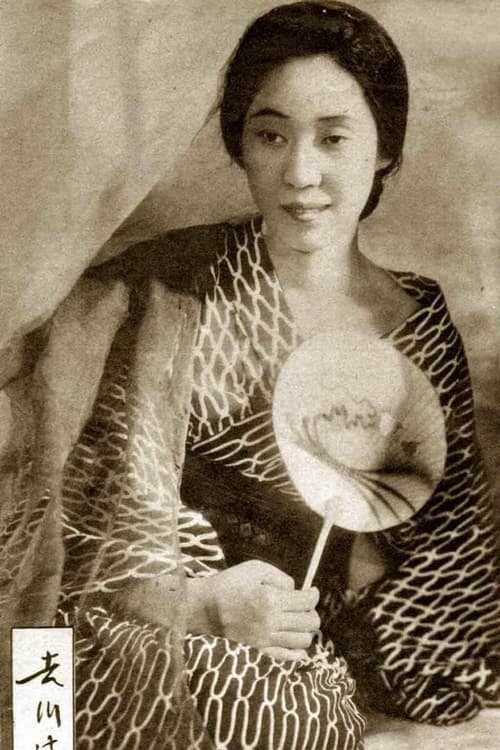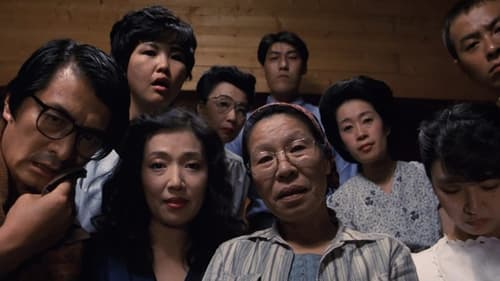
Mrs. Iwakiri
When Wabisuke's father-in-law unexpectedly dies, the family goes through a series of random events and occurrences as the funeral unfolds over three days in their home.
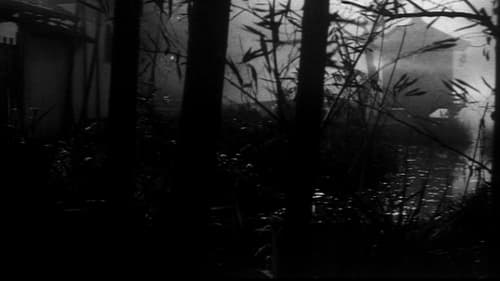
Kumi
Nabeshima Naoshige murders his lord, Ryuzoji Takafusa, seeking to gain power and steal his Lord’s wife. To avoid her fate, Lady Takafusa drowns herself along with her cat in a nearby marsh. A decade later, Naoshige’s efforts to steal another woman trigger a curse on him when she also commits suicide at the same marsh — forcing him to suffer the consequences of his past actions.

Ritsu
Film directed by Kenji Misumi.
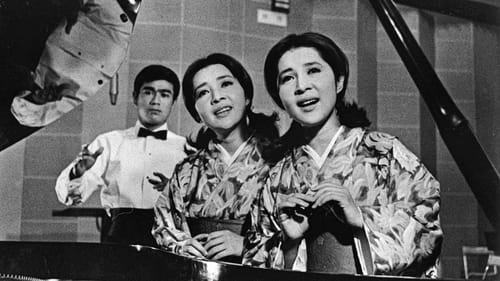
A song drama based on the autobiographical song "The sun is laughing" by composer Endo Minoru. It tells the story of a young man who moves to Tokyo with a big dream of becoming a composer, and despite the unfamiliar city life, sticks to his original intentions with the gentle encouragement of his young wife, and takes the music world by storm.
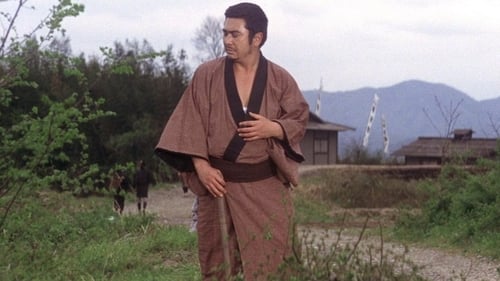
Mother
Zatoichi comes upon a dying man who asks him to give a bag of money to "Taichi". Zatoichi has no idea who this is but when he comes upon a small town harassed by gangsters, he finds that "Taichi" was the man's young son. Along his travels he also met a blind monk who makes Zatoichi question his murderous lifestyle. In trying to help the town, Zatoichi kills some gangsters and becomes a hero to the boy. He must make a choice of whether to use non-violence and set a good example, or violence and set the boy on the wrong path in life.
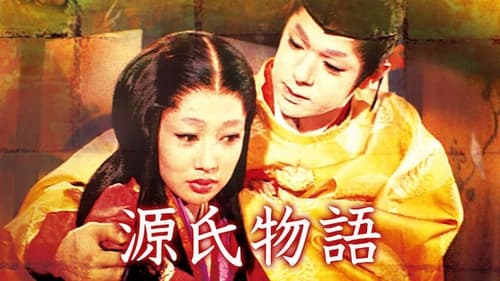
Amagimi
An eroticized adaptation of Murasaki Shikibu's classic novel, written over 1000 years ago. Genji, the son of the emperor, has gained renown among the nobility of Kyoto for his charm and good looks, yet he cannot stop himself from pursuing the one object of desire he must never obtain: his father's young and beautiful bride. Following the tragic consequences of his obsession, Genji wanders from one affair to another, always seeking some sort of completion to his life.
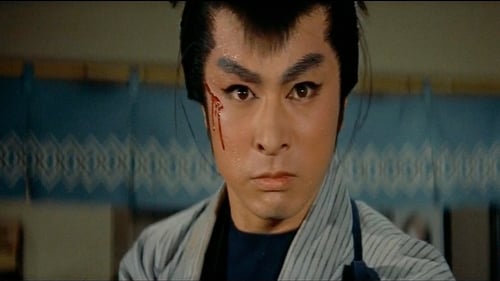
Three young yakuza, Fujitaro, Matsugoro and Kanjuro, travel the country fighting evil.

Ohama
This is a story of a young heir to a powerful house, sent away to be raised by his nanny, so the young lord Genrokuro grew up bitter about his parents, hating his legacy and embracing everyone else from simple background. Only love can help him mature, hopefully in time to be a great lord for the people. A story of young Yoshimune, the future Shogun.

Hisako Ueno
A story about the lives of four sisters and their manipulative mother who must come to terms with each of their decisions in life.
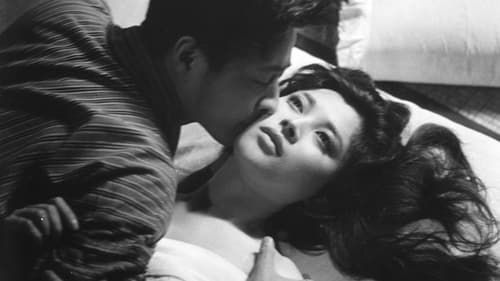
Una joven que trabaja en unas aguas termales salva a un estudiante que quería suicidarse. Éste se enamora de la chica, encontrando un motivo para vivir.
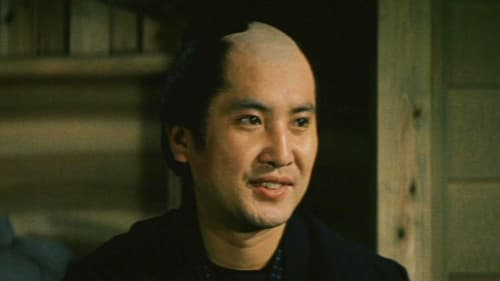
A carpenter, Shigetsugu, learns a lesson of love and humanity from five orphaned children and an affectionate woman named Oritsu. It's a winning combination of drama and humor. The warm friendship that grows between the carpenter, the woman and the children making this into a true masterpiece.

Toshie Ogata
A story of Minako who struggles finding love and peace in life. When Minako’s hope for ultimate happiness, marriage to her beloved fiancé, comes to a sudden halt, Minako finds herself in search of new love which in turn leads her into a complicated love triangle.

Based on the mystery novel of the same name by Seichō Matsumoto.
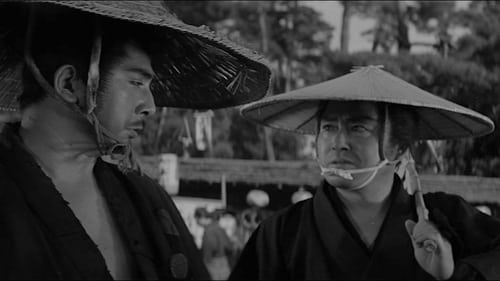
Omaki
Yotsuya Kaidan, the story of Oiwa and Tamiya Iemon, is a tale of betrayal, murder and ghostly revenge. Arguably the most famous Japanese ghost story of all time, it has been adapted for film over 30 times, and continues to be an influence on Japanese horror today.
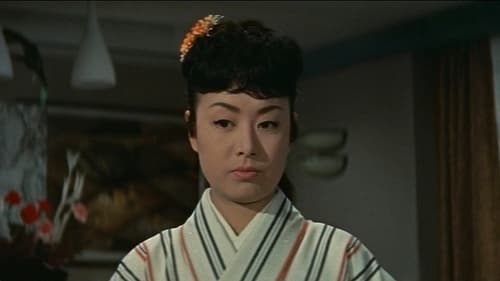
Hibari Misora plays Yoshiko, the popular daughter of a fish market owner. After discovering that she was adopted, she sets out to help her biological father who has fallen victim to an evil plot orchestrated by those who would take over his successful business.

1716, Yoshimune becomes the 8th Shogun as high Shogunate officials are attacked. While the government tries to keep these incidents under wraps, they must take any means possible to get to the bottom of this mystery and find out who is behind them.
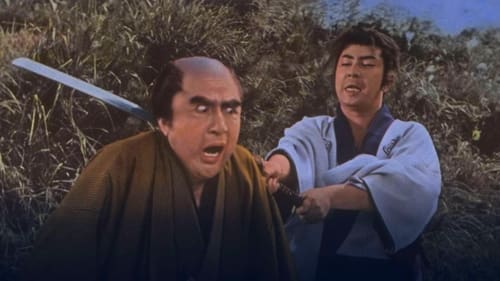
Osai
From the opening theme song to the grand finale, you know that you have found something special as this exciting movie stars the great Misora Hibari in one of her most memorable performances as she plays Shintaro and Oharu, a brother and sister, the children of a lumber dealer who had been murdered by the evil boss Kumagoro who plots to take over Shintaro's family business with the help of a corrupt deputy who has fooled the family into believing that he is on their side.

A poignant story about a young couple, Setsu and Chozo, who are torn apart to save Setsu's father's restaurant.

Sheriff Goro goes undercover to investigate drug smugglers.

Young geisha Kohana scrambles to realize her dream of bringing back her grandmother’s restaurant business.

Sato Akiyama
Koharu, a young geisha, is in love with Kenichi, an apprentice carpenter to her father Masagoro. Their love life comes to a sudden halt after an argument between their two fathers. Can their love survive in spite of the bitterness between their two families?

An adventure of a feisty girl Oyuki and Santa, a homeless child she saves.

Follows the life of Tsuru, the poor daughter of farmers in Shinshu, Japan.

A young woman tries to keep her family together after her father disowns her sister.

Alongside Tokyo's Sumida River is a ragpickers' settlement known as Ant Village. One night, a young Catholic girl, Satoko Kitahara, who has been baptized under the name of Maria, comes to offer her services. However, Ant Village is not just an ordinary vagrants' community but a fine autonomous organization, and as the municipal authorities have long been demanding that the people of Ant Village leave the site, Satoko is utilized to publicize the Village and win public sympathy. While being utilized in this manner, Satoko is nevertheless glad to be able to help the people of Ant Village, especially the children, and when the summer vacation comes she decides to take the children on an excursion to Hakone. To raise funds for this purpose she becomes a rag-picker herself.
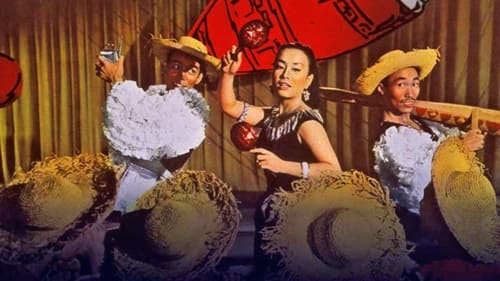
Sayuri, a young woman born to a simple life on a farm, moves to Tokyo to pursue a life long dream of becoming a singer. Through dance, music, and songs, this story shows how a girl raised on a farm was able to make her dream a reality, with the love of those around her.
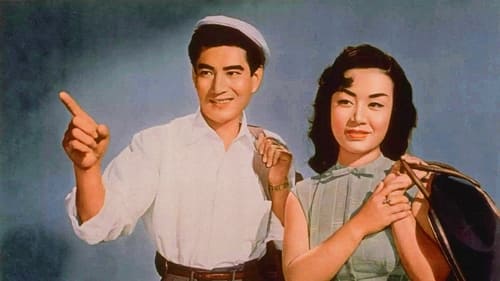
A friendly rivalry turns into romance for Yukiko, an elite female detective, and a handsome private eye named Mitamura while both are investigating the missing person's case from a wealthy family.

Neighbour on the left, Madame
Ignoring the protests of his working-class mother, a young man becomes wrapped up in the world of delinquents and yakuza.

Sato

A boy falls in love with a girl. Neither of them know that she's to be sold to a brothel.

Japanese war film.

Each one of us lives differently. So, there are many tragedies and comedies in our lives. She feels many conflicts in living her life between truth and love.

Numazawa's mother
Atsuko is an office secretary who is also her family's primary source of income and caretaker in postwar Japan.

Drama directed by Yasushi Sasaki.
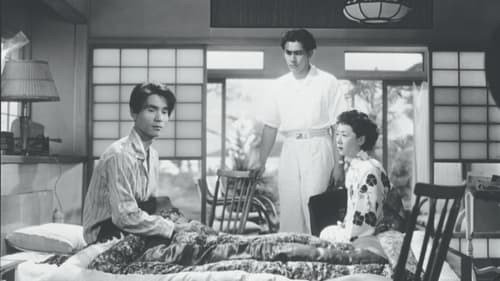
A jewelry store president begins to fall for the doctor treating her husband's illness.

"Delinquent Girl" - A melodramatic love story, a would-be apprenticeship between the titular “bad girl” and the optimistic scholar returning from the big city.

Shizu Oe
A young man rents an apartment in Tokyo and discover it was built by his father. He falls in love with the daughter of the mistress of the house and decides to marry her. Only to discover that his father is is in debt and wants him to marry Ranko so that she may help his company by granting 1.5 million yen. Teruko decides to borrow money from a greedy bar owner who lends her money on certain conditions and photographs her without her consent. A love traingle forms between Koroku, Ranko, and Teruko. Things complicate when Koroku marries Teruko and Tsugawa threatens them for the money causing many twists and turns.

Older Sister Machiko
A newly hired daily newspaper writer covering the society beat receives an assignment to cover Tokyo at night by walking and observing it. He gets into the right frame of mind by dressing the part as a vagrant with not a penny to his name. He gets into trouble ending up at the police station slammer overnight. He has no material to write about and, with his assignment unfulfilled, faces a cross editor.
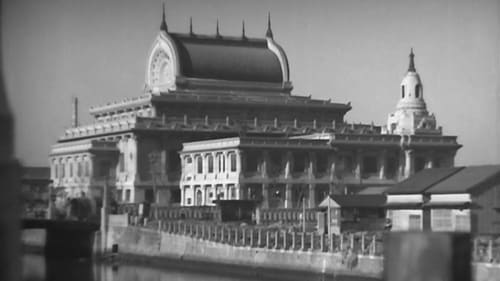
Kikuko
En el Japón de la postguerra, un hombre encuentra en la calle a un niño perdido y lo lleva a su casa, pero nadie quiere acogerlo, ni siquiera por una noche. Finalmente, lo hace una viuda de agrio carácter. Al día siguiente, la mujer lleva al niño a su barrio y averigua que el padre se ha marchado a Tokyo y lo ha abandonando. (FILMAFFINITY)

Lord for a Night is a 1946 Japanese film directed by Teinosuke Kinugasa.

Ichiro's mother
Hisshoka is a 1945 Drama film directed by four Japanese directors.
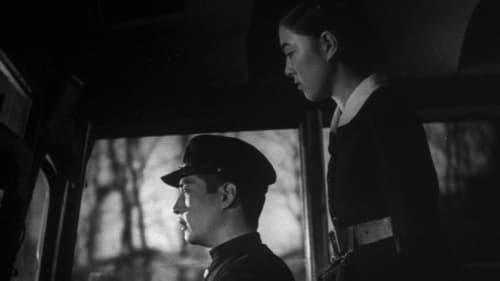
A wealthy family will not allow the military to grow crops on their fields due to their superstitious beliefs about their son's illness.

Takako, mother
Japanese propaganda film about the Normanton Incident.
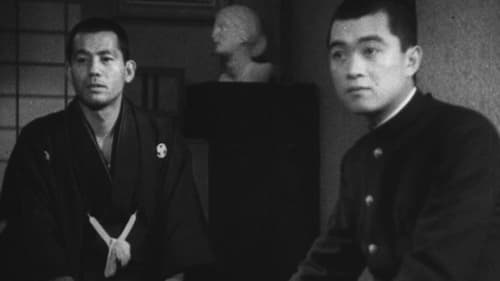
Mother
A family story in the year of 1943 during the war. The director is Shunkai Mizuho, who worked on "Hibari no Circus Sad Kobato" starring Hibari Misora after the war. Previously, there is only a 6-minute short version in the National Film Archive, therefore, the full version is this movie is very valuable. This is considered a masterpiece that depicts a happy family of 7 (a father, a mother, 3 sons and 2 daughters).They care about each other, and also trust each other. Father started to ask all the children "what do you want to be in the future?" since an early age. Boys said they want to go to college, they want to be painters, and when it comes to the girls, although they wanted to be generals, their answer was "become a bride, a wife, and a good mother." Brothers and sisters get along well and occasionally fight, but they all discuss the cause, and would apologize to each other. The story was so gentle that it is hard to believe it was during the war.

Hiromasa Nomura World War II era film

Pretty Oshige is deceived by her first love. After this, she lives a hard lifestyle, working at a number of jobs. Her only pleasure is her nephew, who eventually becomes a merchant marine. When Oshige meets her old love ten years later, she is able to forgive him and even thank him for the path her life has taken.

Inoue was something of a rarity in the sense, that he was a Shochiku house director who seems to have worked mostly in period films, often with big stars like Hasegawa or Bando. "Sumidagawa", named after the river that runs through Tokyo, is also a period film, but thematically a modern one. All the themes that you associate with the normal Shochiku women's films set in the present day are in this film, just in a different context: love, the planning of a marriage, career, family relations and societal melancholy. There is no action or swordplay.

Most of the students studying Ikebana with Kozoe Iemoto are daughters of rich Tokyo families. Kozoe meets and grows close to a doctor who proposes marriage but whose mother harbours ill feeling towards her because of an incident in the mountains where a child got into difficulties. Kozoe rejects the proposal but falls ill and when she recovers, decides to devote herself entirely to the world of flower arranging.
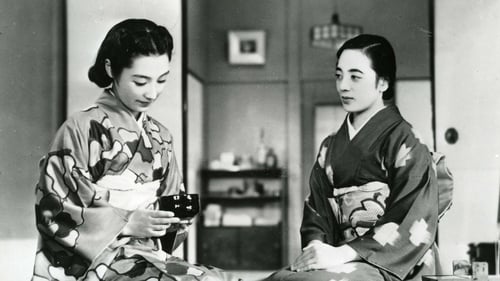
Chizuru
Después de la muerte del patriarca, los Toda, una familia de clase alta, está posando para una foto. Al mismo tiempo que todos lamentan la muerte del padre, se enteran de que éste les ha dejado una deuda considerable.

Mrs. Nakatsugawa

Mrs. Hosokawa
A spirited young teacher challenges the conservative school employing her with liberal thinking and teaching methods.

Kinuyo is a daughter of rice cracker shop in downtown. She fell in love with her sister's boyfriend. It is a story whose theme is warm human relationships in a town of customs and manners.

Eiko's aunt, Osumi
Melodrama about a talented singer who finally makes her debut

Naomi Tazawa (Hiroko Kawasaki), who works at Isetan Department Store, was told by an executive at a film company (Ken Uehara), that he was going to make a film about her. She was scouted to become an actress, but she held strong. Around that time, her adoptive father dies, and at the time of his death, she learns that her real father was a man of high rank.

Mother
A follow-up to Children in the Wind, Four Seasons of Children(a.k.a. Kodomo no Shiki) is also based on a Tsubota Joji novel. The film is divided into two chapters, following the young protagonists' minor adventures and real-world awakenings over spring and summer, then autumn and winter.

This film was mainly shot in the Japanese skiing resort Hokkaido in 1937-38 and was intended to create support for the coming winter olympics of 1940 in Japan which however were cancelled because of the Japanese-Chinese war. A Japanese production, it was nevertheless made with German involvement in the form of skiing champion Sepp Rist and celebrated cinematographer Richard Angst (who also contributed to the script). Both had regularly worked with the inventor of the mountain film genre, Dr. Arnold Fanck, who had helmed the German-Japanese co-production "Die Tochter des Samurai", also shot by Angst, the year before. Angst apparently stayed in Japan until mid-1939 when he returned to Germany, carrying this film with him. Angst submitted it to the German censors later that year, but for reasons unknown to me it took three more years before the film was finally shown in Germany under the name "Das heilige Ziel" (The Holy Aim). (Karargara)

Yasuko
Two childhood friends go their own ways but meet again some years later after they have both married. They get re-acquainted, meet each others’ families, and all is well. Then the disagreements start...

A young doctor, Kozo Tsumura, falls for young nurse Katsue Takaishi. But she's got a secret: she's a widow with a son. Kozo and Katsue decide to run away to Kyoto, but her child suddenly became sick and she just missed the train and Kozo. She makes it to Kyoto finally, but is unable to meet him. Plus she isn't accepted into Kyoto society. She goes back to her hometown and tries to forget him. She quits the hospital to concentrate on her singing. She makes her professional debut with the hit "Aizen Katsura". Kozo is in the audience.

Orin
The movie follows a young woman (Kinuyo Tanaka), a daughter of a high-ranking businessman and his neglected mistress, as she struggles to ease her mother's loneliness, while also having an affair with her father's subordinate.

Mother
On vacation's eve, a boy is sent to the countryside to live with his uncle after his father is imprisoned and accused of embezzlement.

Sabu Toshinobu is an archaeologist who has taken a liking to Kinuyo Tanaka, the daughter of an archaeologist at an inn in Izu, where he is visiting to conduct an excavation. Sabun gets along well with his childhood friend Michiko Kuwano, but his mother (Fumiko Okamura) is against her, so he gives up easily and ends up being married to Kinuyo Tanaka.

Sabu Toshinobu is an archaeologist who has taken a liking to Kinuyo Tanaka, the daughter of an archaeologist at an inn in Izu, where he is visiting to conduct an excavation. Sabun gets along well with his childhood friend Michiko Kuwano, but his mother (Fumiko Okamura) is against her, so he gives up easily and ends up being married to Kinuyo Tanaka.

Omiya's mother
A penniless orphan loses the woman he loves, when her family arranges a marriage to a wealthy playboy. He believes she was blinded by greed, and becomes a miser.

Mitsuko, his wife
A Japanese screwball comedy about the battle between the sexes: two timid men, egged on by their wives, end up in a bitter duel over an expensive lace handkerchief.

Yone, Yasuo's mother
Kinuyo is a daughter of doctor of Chinese medicine, and Yasuo is a son of surgeon. Their families always fight like cat and dog. This relationship is ancestral. Although Kinuyo and Yasuo love each other, they have different thoughts toward treatments.

Mitsuko, widow in Denen-chofu
El profesor Komiya está casado con Tokiko, una mujer muy estricta y dominante. El matrimonio tiene que hacerse cargo de la custodia de su sobrina Setsuko que, aunque menor de edad, ya es una mujer liberada, que fuma y sale de noche. Un sábado Komiya va a un bar, donde encuentra accidentalmente a Setsuko. Cuando Tokiko ve que la chica llega a casa con uno de los estudiantes de su marido y, además, se entera de que éste no ha dormido en casa, empieza a alimentar toda clase de sospechas.

Geisha
Three men fall in love with the same young girl who works in a tonkatsu restaurant in the Shitamachi district of Tokyo.

The eldest daughter of a noble family is in love with an aviator while being courted by a fellow aristocrat she thinks is a dullard. Told from the perspective of Ryota. In this second part, we learn that Akemi is pregnant...

The eldest daughter of a noble family is in love with an aviator while being courted by a fellow aristocrat she thinks is a dullard. This part is told from the perspective of Akemi.
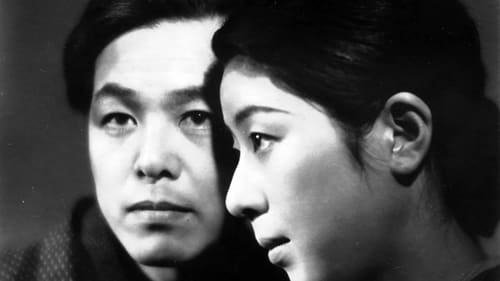
O-Taka
Una campesina se esfuerza al máximo para que su hijo pueda recibir en Tokio una buena educación. Algunos años después, lo va a visitar, dando por supuesto que será feliz y tendrá una buena posición social. Pero, nada más llegar, se encuentra con la triste realidad: su hijo, que está casado, es profesor de la escuela nocturna y vive sumido en la miseria.

A musical film made for the inauguration of Shochiku's Ofuna Studio, with an all-star cast of the era.

Okiyo, Fumikichi's wife
Otoku asks her brother Bunkichi to speak with her son Seiichi, a young man for whom sacrificed everything but who now seems to be headed for a wastrel life. Bunkichi admonishes the boy to study harder, but it seems his uncle's advice may already be too late.
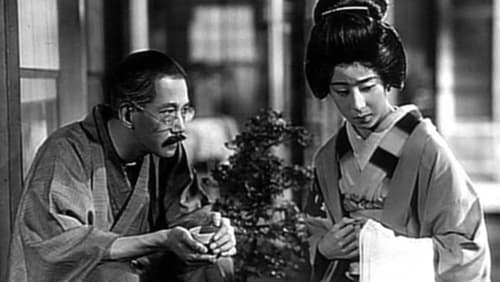
Tamako Fukushima
Family drama. A middle-aged father has just married off his third daughter, but still has his nine year old son to raise whom he resents as he was unwanted. (British Film Institute)

Haruko Nemoto
The story focuses on the widower Nemoto, ostensibly a businessman, who has one son, Kanichi, the hero of the title. Nemoto remarries; his new wife is a widow with a son and daughter of her own. However, Nemoto’s business turns out to be out a shady scam, and he disappears, leaving his wife to raise the three children alone. In order to support the family, she is obliged to become a bar hostess. She conceals this shameful employment from the children, but the truth comes out years later, after her daughter is rejected by her husband’s family when they investigate her background.
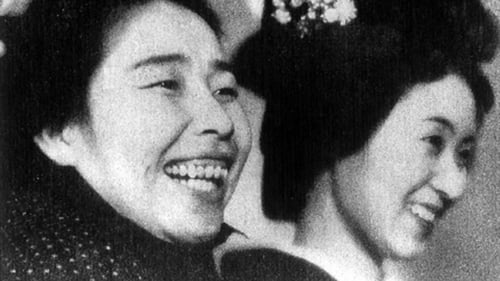
Otaka
In a back alley of the Shitamachi district of Tokyo, Kihachi bears witness to a series of romantic complications involving the inhabitants of the neighborhood. Considered to be a lost film.

Ôsaki's mother
The story is centered around the devastating experiences of two villagers, Osaki Shuichi, and his cousin, Nishimiura Kinue, when they leave their hometown for the metropolis of Tokyo. They are in love with each other, but Kinue is expected to marry the lawyer Kanda Seiji. In consequence, Shukichi leaves for Tokyo, where he becomes tutor to the son of the rick Iwaki family. The heartbroken Kinue also makes her way to the capital, where she becomes a bar hostess.

Haha, Chieko
The film tells of the strained relationship between a mother and her two sons after the death of the family patriarch.

Restaurant proprietress
The story deals with Fuji, nicknamed Waka-danna (Young Master), the star athlete on his university's rugby team. The son of a wealthy soy sauce manufacturer, Fuji basks in the glory of his athletic celebrity. Attracting the attention of admiring young women, Fuji resists family pressure to settle down and marry after college. Instead, he spends much of his time drinking and womanizing, behavior which eventually leads the college officials to expel him from the team.
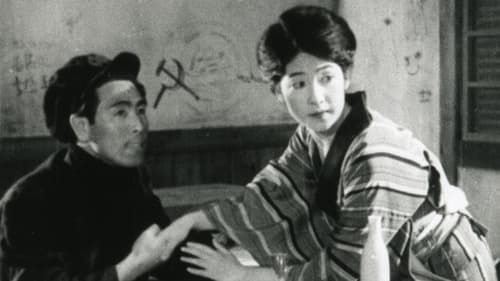
Neighbor's wife
La joven Omitsu se ha quedado sola con su hijo Ayabou tras verse abandonada por su esposo, Mizuhara. Cumplido su turno de camarera, regresa a casa para descubrir que su marido ha regresado. Mizuhara promete hacer borrón y cuenta nueva, así como encontrar un empleo que permita a Omitsu dejar de trabajar.
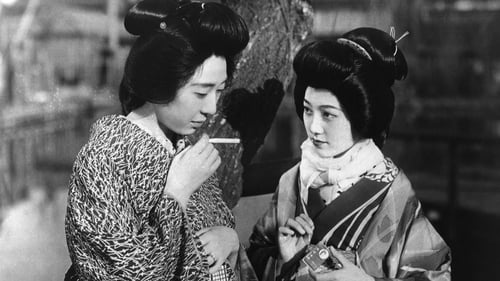
Kikue
La vida de una geisha de mediana edad, cuyo adolescente hijo se avergüenza de su profesión, es puesta en contraste con la de una joven compañera, una chica encantadora a la que su familia empujó hacia ese tipo de vida.

Another girl
A young man falls in love with a prostitute and is disowned by his family. He is then drafted, and heads off to war. Script exists - considered to be a lost film.

Haha
La familia Yoshii se traslada a vivir a un suburbio de Tokio para que el padre esté más cerca de su trabajo. Los dos hijos deben adaptarse a la nueva escuela, pero se encuentran con la hostilidad de un grupo de chicos entre los que está Taro, el hijo del señor Iwasaki, jefe de su padre. Reacios a ir a la escuela, consiguen vencer en una pelea a la banda enemiga con la ayuda de un vendedor de licores. Al final se hacen amigos de Taro, y éste les enseña un vídeo en que su padre hace payasadas para complacer a su jefe, el padre de Taro. Los niños se enfadan con su padre y emprenden una original huelga infantil.
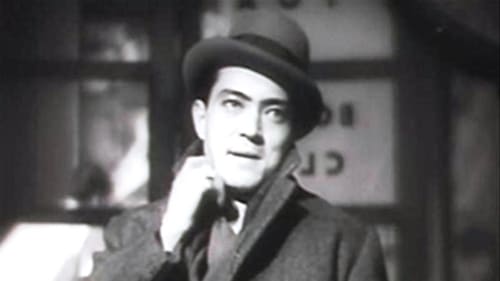
Mrs. in the Tavern
Early Japanese sound film, a remake of Josef von Sternberg’s DOCKS OF NEW YORK set in Yokohama.

Mother
Film by Hiroshi Shimizu, featuring an early role for frequent Ozu and Naruse collaborator Hideko Takamine.

Mitsuko
Two people are fascinated by a sculptor's statue. The film is lost.

Sono haha (Teruo's mother)
La Señora y la Barba comienza como una comedia bulliciosa, vulgar, que poco a poco se adentra en la melancolía y el patetismo. "La barba" del título pertenece a Okajima, un maestro de espada kendo que no puede encontrar un trabajo en la época de la depresión en Japón. La barba se la afeita cuando “la bella" - una mecanógrafo que ha salvado de un atraco- le convence de que es un obstáculo para encontrar un trabajo. Incluso bien afeitado, él no puede huir de los problemas: la nueva mujer de su vida resulta ser un ladrón de joyas. La Señora y la Barba es fascinante por su "audacia sexual" y por su crítica total a la occidentalización y el nacionalismo japonés estrecho de miras-

Toshiko, his Wife
A salaryman finds some money in the street and gets a reward for returning it to its rightful owner. However his colleagues immediately start borrowing money and selling him things he doesn't need, much to his wife's annoyance. Considered to be a lost film.

Wife
Silent comedic short by Mikio Naruse

Bar's girl
Bored in his marriage, a dentist flirts with a young woman on a train. However he soon finds himself embroiled in a series of misunderstandings with his wife, the young woman and her husband. Considered to be a lost film.

The 1929 Japanese film "Mother" which helped child actress Hideko Takamine become a star.

Fukuko Tsukamoto
When Sakamoto is made redundant he cannot bring himself to tell his wife. Instead he investigates other employment opportunities. Considered to be a lost film.

Yoshie, wife
A young couple flee their disapproving parents, get lost of Mt. Akagi and find a cache of gold protected by the ghost of a gangster.
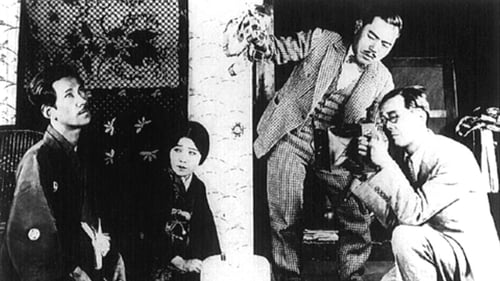
A hen-pecked man works as his artist wife's model and a house-husband. When her patron flirts with her and humiliates him, he decides to get revenge by trying his own hand as a painter. Considered to be a lost film.

Chiyoko, Eikichi's wife
When a woman unfairly suspects her husband of flirting with a shop assistant, she decides to flirt with their landlord to get revenge. Considered to be a lost film.
